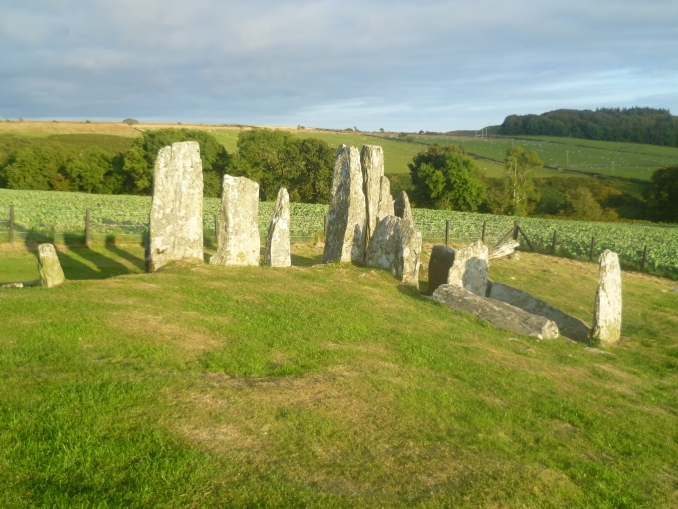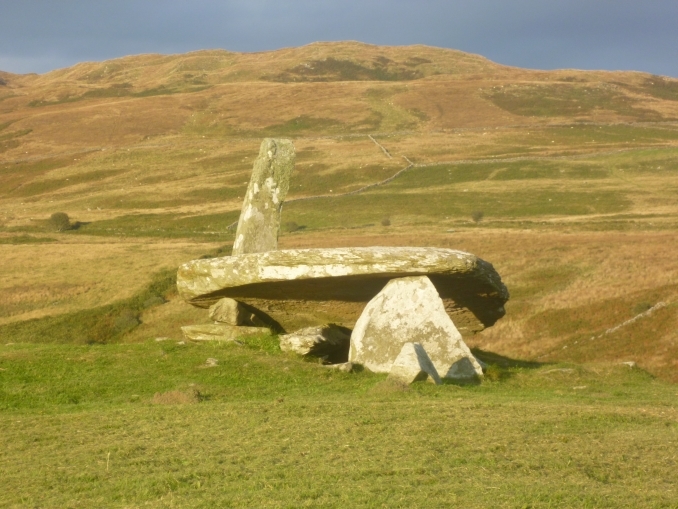Galdus the Scottish King whose legend is honored in ancient monuments
Little is known of the mysterious King Galdus. However, in legend he is described as a Scottish Chief who fought the Romans. His fame was such that ancient monuments, built long before his time, became associated with him. However, there is not likely to be any connection between this historical figure and these prehistoric remains. One of the sites is that of the two Neolithic tombs of Cairnholy, in Dumfries and Galloway in South-west Scotland. Both tombs built to honour the ancestors of the Neolithic farming communities that lived in this area between 6000 and 4000 years ago. Created in a beautiful location on a gentle sloping hill above Kirkdale Glen looking towards Wigtown Bay. Local tradition maintains that one of the tomb’s was that of King Galdus. Another site associated with him is the nearby ancient stone circle of Torhouse or Torhousekie. There are nineteen granite boulders in the circle. The three large stones in the middle of the circle are also said to contain the tomb of Galdus.
So the name of King Galdus remains strong in local legend and is remembered in these ancient monuments The Galdus that is being honored is thought to be King Corbred II surnamed Galdus and described in The History of Scotland by George Buchanan (1506 - 1582) which records that he began his reign in 76 AD and died in the thirty-fifth year of his rule. This is the Corbredus Galdus or Calgacus who fought against the Roman invasions of Scotland. According to Tacitus (c. AD 56 – c. AD 120) the Roman senator and a historian, he was a chieftain of the Caledonian Confederacy who fought the Roman army of Gnaeus Julius Agricola at the Battle of Mons Graupius in northern Scotland in AD 83 or 84.
In his book on the life of his father-in-law, Gnaeus Julius Agricola, written in c.AD 98 Tacitus refers to Calgacus as "the most distinguished for birth and valour among the chieftains" He wrote about a speech which he attributes to Calgacus urging his forces to fight in battle which ends with this damning descriptions of the Romans : "Robbers of the world, having by their universal plunder exhausted the land, they rifle the deep. If the enemy be rich, they are rapacious; if he be poor, they lust for dominion; neither the east nor the west has been able to satisfy them. Alone among men they covet with equal eagerness poverty and riches. To robbery, slaughter, plunder, they give the lying name of empire; they make a solitude and call it peace."







